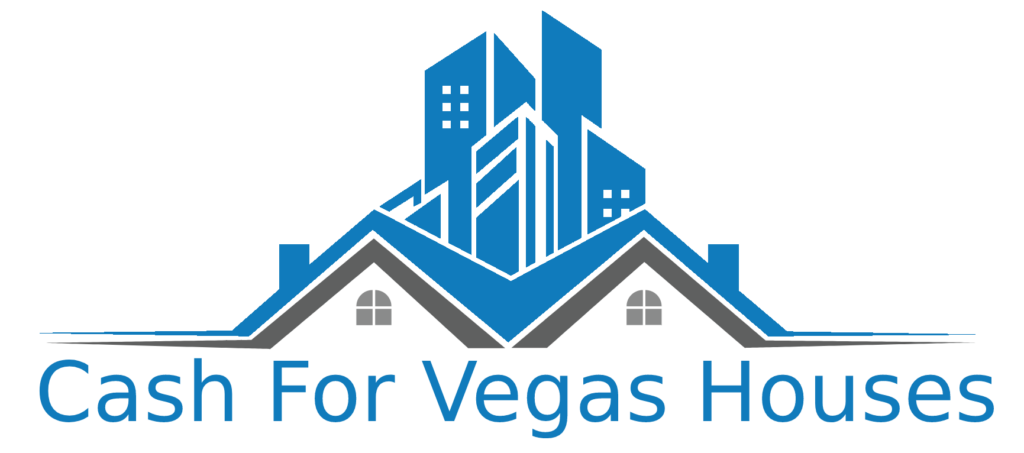When selling a house, speed, ease, and surety are considered the main priorities among homeowners. iBuyers exist for just this reason. But what is an iBuyer exactly in the real estate world, and is selling to one a good fit for you? In this blog, we take a look at what iBuyers do, how they work, their pros and cons when selling to one, and finally, the biggest iBuying companies in the industry.
What Do iBuyers Do?

These are companies that purchase houses very fast via technology and data algorithms. They are designed to simplify the home sale and purchase process by providing the market with a quick and efficient alternative to the traditional way. Not surprisingly, iBuyers mostly target good-condition houses located in urban areas to make competitive offers based on neighborhood data and home evaluations.
How Does an iBuyer Work?
After a homeowner submits his information through the iBuyer platform, the seller’s home is evaluated with information from various resources. A home’s details are under investigation, oftentimes with the help of an automated valuation model (AVM) from the iBuyers for the sake of market valuation. The investment, using such information, puts an offer virtually instantaneously to the homeowner. Should the offer be accepted, the iBuyer starts the paperwork and proceeds to close a fast sale—within days.
Benefits of Using an iBuyer to Sell Your Home

1. Speed:Probably one of their biggest advantages is speed. Traditional home sales can take several months; iBuyers can close, in some cases, in as little as a week. This can be tremendous in cases when the owner wants to sell quickly due to something like a job transfer, financial strain, or other considerations.
2. Buying and Selling at the Same Time:If you are trying to buy a nib home while selling your old home, it can become tough to make the timing right. Since usually, the iBuyers provide flexible closing dates, along with the engagement in intricacies of setting Showings for buyers; it could become easier to align the sale of your old house with the purchase of a new one.
3. Convenience: Everything you won’t have to worry about with the iBuyers sounds just wonderful- you won’t have to trust whether your house has an open house scheduled, you’ll have no worrying about staging; No anxious showings, or keeping the house immaculate for visiting potentials.
4. Flexibility:Often iBuyers offer several closing date options; it usually gives the seller the ability to decide when they’re looking to move out. This is a huge upside in cases where you want more time to find a new place or set other arrangements.
5. Greater Certainty: No more wondering whether the deal will fall through due to buyer financing problems. Once you accept the offer given by iBuyers, it is not very likely going to turn end out in an aborted sale, bringing huge relief to sellers.
Drawbacks of Using an iBuyer to Sell Your Home
1. Lower Profit:The biggest drawback of selling to an iBuyer is that you might receive an offer lower than what you would with an open market sale. Offers made by iBuyers are based on the anticipated cost of reselling the property and hence might be slightly lower than market value.
2. Limited Availability:iBuyers typically only operate within specific and mostly urban markets; there are very few opportunities in rural areas or less active zones.
3. Opportunity Costs: In selling too quickly to an iBuyer, you could bump heads with an offer probably more advantageous in a traditional sale, especially with regard to sales typified by lots of seller competition, essentially creating bidding wars.
Is It Worth Selling to an IBuyer?
Whether selling to an iBuyer is worth it depends on your individual needs and circumstances. If speed, convenience, and certainty are your top priorities, an iBuyer can offer a quick and hassle-free sale. However, if maximizing profit is your main goal, you may be better off selling through traditional means.
What Are the Biggest iBuying Companies?

Several major players dominate the iBuyer market. Each one offers slightly different services and works in different parts of the country. Here are some of the heavyweight iBuying companies:
- Opendoor:One of the original iBuyers to open its doors, Opendoor operates in numerous cities across the U.S., priding itself for its transparent pricing and fast closing times.
- Offerpad: Another leading iBuyer, Offerpad focuses on providing flexibility to homeowners with customizable closing dates and concierge services.
- Orchard: Orchard combines iBuying with a more traditional real estate model, allowing sellers to list their home while simultaneously buying a new one.
- Homeward:Homeward offers financial services to help sellers transition between homes, making the process of buying and selling at the same time easier.
How Did iBuying Begin?
Emerging into the mid-2010s, iBuying is a new real estate concept. Using data and technology to streamline the home-buying process, the model was first put out to the market by firms like Opendoor. Since then, this model of their kind has gained rapid growth with other companies entering the view and joining in on the pool of iBuyers servicing various cities across the United States.
What Are the Costs of Working With an IBuyer?

iBuyers do offer convenience and speed, but there are costs associated with it. They basically charge a service fee that is generally anywhere between 5% and 10% of the sale price-or sometimes even higher, compared to the more traditional transaction. Additionally, if repairs are needed on a home before resale, iBuyers may deduct that expense from their offer.
IBuyer Pros and Cons
IBuying Pros:
- Speed and Convenience: You can sell your home in as little as a week with little trouble.
- Predictable Closing Time: There is no waiting around for buyers or for bank approvals; closure is quick and guaranteed.
- Limited Repairs and Showings: There are no requirements for you to stage your house for sale or get it in terrific shape before selling.
- Streamlined Process: iBuyer is going to manage most of the paperwork and logistics, so there will be less headache for you.
iBuying Cons:
- Potentially Lower Offers: iBuyers perhaps do not give anything higher than what you obtained from the open market.
- Limited Negotiations: iBuyers make “take it or leave it” offers that allow you virtually no room for negotiations.
IBuyers vs Traditional Home Selling
Selling a property to an iBuyer is quicker and easier than traditional methods, but it can result in lower offers and greater fees. A traditional sale may take more time and require you to exert more effort into staging, showings, and repairs, but it can culminate in a higher selling price.
Is iBuying Right for Your Home Sale?
If you are willing to sell urgently, prioritize convenience, or wish to circumvent the stress of a traditional sale, iBuying could be a good option. Otherwise, if maximum profit is your aim and you can hold on for a longer time, it may be a better idea to list your home on the open private market.
The iBuyer Business Model

An iBuyer works mainly along the lines of technology to resolve buying and selling homes from the {acuity encapsulated inspired by}{encased by}. An iBuyer moves to make an official offer by way of price as determined through data and algorithms. Since the inception of this particular business model, the iBuyer process is thought to skip these traditional home selling means: listing with an agent, waiting for buyers, and negotiating for the longest time.
Usually, although quickness, convenience, and certainty come in for a price, iBuyers are thus able to dispense good offers: although these values usually tend to fall short of market value, most home buyers should normally expect an offer from an iBuyer at around the same value as the amount they would realize after fixing it up for sale. iBuyers prefer homes that are generally in a nice state of repair so they can quickly resell after minimal renovations and transfer these towards the bottom line via fees, appreciation in prices, or efficiency of processes.
Generally, the iBuyer business model will work:
- Home Purchase: iBuyers make cash offers to the seller within hours or in a few days or weeks on the basis of IT-generated assessments of value of the home. A seller can close in a few days or weeks, or until they feel it is required, before eventually closing a sale, much shorter than independent sellers who take several months.
- Minor Repairs: More often than not, after a purchase, an iBuyer will make light repairs, or improvements if necessary, after evaluating the existing home in order to maximize the appeal of the home to would-be buyers.
- Resale: The iBuyer then re-lists the home on the market, usually at a slightly elevated price, seeking to close a quick sale such that it recoups its investment and earns its profit.
- Fees and Other Income:iBuyers also charge sellers a service fee (about 5-7%), which is in line with that of a traditional real estate agent’s commission—but fast sales prove to be the prime selling boost. iBuyers also stand to profit on related services such as title insurance, mortgage brokering and even moving services.
It is this model that banks on high provincial numbers and low gross margins. It’s critical for iBuyers to flip their properties as fast as possible, and keep on pushing through the costs, to ensure that the model keeps yielding a profit.
How iBuyers Make Money
There are several ways that iBuyers monetize their services:
- Service Fees:iBuyers’ principal source of revenue comes from service fee charges to the sales agent. These fees generally range from 5% to 7% of the sales price, in line with traditional real estate commissions or slightly above them. The sellers often shoulder this additional cost due to the benefit of a quick and stress-free sale.
- Selling at a Higher Price: iBuyers attempt to resell houses they purchase for a higher price than they paid. Of course, they won’t typically make the highest bid for the house in order to leave room for themselves to make a profit. Nevertheless, the difference between purchase and resale price goes right into their profits. iBuyers generally rely on selling quickly within a few weeks or months so that they incur minimal carrying costs, including property taxes, insurance, and maintenance.
- Repair Credits: After a preliminary purchase, the iBuyer inspects the house for any considerable issues that may be notable. In the event that a substantial problem is discovered, iBuyers may request repair credits from the seller. Although it must be noted that the iBuyer buys the property at a reduced price due to some repair work required, the component of value gained by doing the repairs is much lower than what the iBuyers would have sold it for, because of their scale.
- Ancillary Services: Many ancillary services yield revenue for iBuyers-Mortgage financing, title insurance, and escrow services being a few. iBuyers use vertical integration to bring in the extra revenue flowing from home buying and selling.
- Appreciation: In markets where home prices are rising quickly, iBuyers may take advantage of price appreciation that occurs between buying and reselling a home. Although not guaranteed, appreciation can allow iBuyers to obtain a larger margin on resale in steadily appreciating markets.
iBuyer Pricing Strategies and Algorithms

The price predictions carried out by the iBuying companies are conducted on the basis of algorithms employing data extrapolation:
- Automated Valuation Models (AVMs):iBuyers employ Automated Valuation Models (AVMs) to yield offers instantly. A very large quantity of data, including recent sales, property characteristics, location, trend in the market, and even minute data like square footage, number of bedrooms and bathrooms, and condition of the property, are analyzed by AVMs at once. This data modeling helps the iBuyer return an offer pegged on the fair price determined by the sales of comparable properties, aka comps.
- Instant Offers: iBuyers’ algorithms will aim to provide an instant offer, requiring the pricing model to be très rigorous and sufficiently accurate to provide a competitive offer with no or little need for human intervention. The algorithm takes into consideration various market data and factors concerning repair costs, holding costs, and some sort of a profit margin.
- Margin Considerations:iBuyers need to strike a careful balance when creating offers that are competitive; they typically price slightly beneath homes’ market value. By leaving some room for their own service fee and for eventual costs related to repairs or fluctuations on the market, it ensures they can resell the homes at a slight profit. This pricing strategy, after all, prevents the iBuyer from overpaying, thus lowering its risk.
- Repair and Holding Costs:The algorithms also estimate the possible repair costs and holding costs that will prevail for that unit. The better condition homes are apt to receive higher offers, for the cost it will take the iBuyer to ready the home for resale will be significantly lower. By contrast, any homes needing more repairs or located in slow-moving markets should expect a lower offer reflecting the enhanced risks and costs of holding these properties for a longer time.
- Real-Time Market Adjustments: iBuyers frequently refine their algorithms due to a constant demand to align with market gyrations. Suppose home prices in a particular area are rapidly rising. In that case, the algorithm might increase to make it a competitive offer. If prices in a localized market are cooling, dropping, or remaining stagnant, the iBuyer or any transaction would further reduce the offer price to ensure that they are not stuck amassing a stock of inventory that they neither can nor wish to sell at an eventual profit.
With the valuation from AVMs, repair estimates, and data-driven insights, iBuyers can practically and expeditiously seize the opportunity to offer quick sales while engaging in a robust assessment program to maintain their margins.
How Do You Choose the Right iBuyer?
When selecting an iBuyer, look out for service fees, presence in the market, and what the other customers have to say about them. Pick several of them to compare offers and service terms to ensure that you attest your properties at a reasonable price.
Final Thoughts: Is IBuying Right for You?
Selling your home to an iBuyer assures speed, convenience, and a dose of certainty but arguably at a discount sale price. If you’re in a rush to sell or if you prefer a worry-free process, iBuying may be the perfect option for you. However, if you’re angling for getting top dollar for your property, a traditional sale may be the best way to go. In both cases, by getting an understanding of the iBuying process and its pros and cons, you will be in a strong position to decide on the best way to sell your home.
For more information on selling your home in the Las Vegas area, visit Cash for Vegas Houses today!



